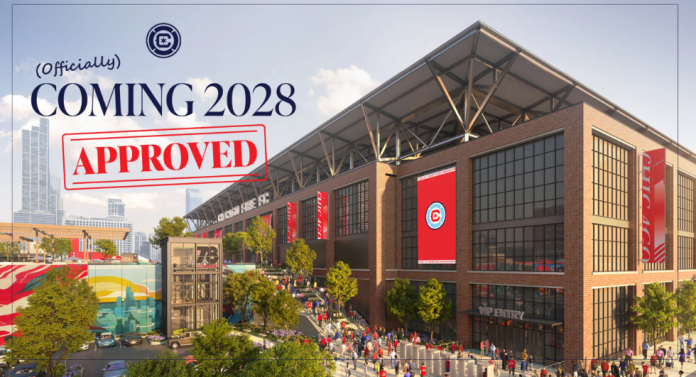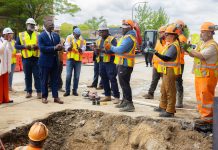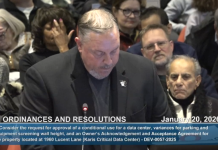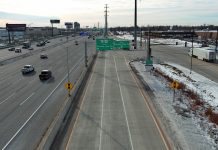Chicago Construction News staff writer
Chicago Fire FC has received City Council approval to build a privately financed, 22,000-seat stadium in The 78, a 62-acre development site just south of downtown along the Chicago River. The facility will be the first major stadium built in Chicago in more than 30 years and is scheduled to open for the 2028 Major League Soccer season.
The project is entirely backed by club owner and chairman Joe Mansueto, who is funding the estimated $650 million stadium without public financing planned as an open-air, soccer-specific venue with premium seating tiers, hospitality spaces, about 50 suites, and a supporters’ section with roughly 2,000 safe-standing seats. An exposed steel canopy over the seating bowl is designed to enhance the stadium atmosphere and reflect crowd noise back toward the field.
Construction is being led by a joint venture of three Chicago-based contractors: Pepper Construction, GMA Construction Group, and ALL Construction Group. This team was selected after a nationwide search by the Fire, with club owner Joe Mansueto emphasizing the importance of local expertise and community representation in the project’s leadership.
The stadium will occupy about 10 acres within The 78, which is envisioned as a new mixed-use neighborhood featuring residential, retail, office, and entertainment space. Project proponents say the stadium will anchor the area, creating a year-round destination and supporting the larger redevelopment of the South Loop. The site benefits from proximity to multiple CTA lines and bus routes, improving transit access.
City council’s approval follows earlier zoning and plan commission approvals and clears a major hurdle for the project. Construction is expected to begin in early 2026, with preparatory work including site grading, utility extensions, and removal of unused rail infrastructure.
The Chicago Fire have played at Soldier Field since 2020 after relocating from their original Bridgeview stadium. If completed on schedule, the new facility would give the club a permanent home and serve as a catalyst for investment in one of the city’s largest undeveloped urban sites.






